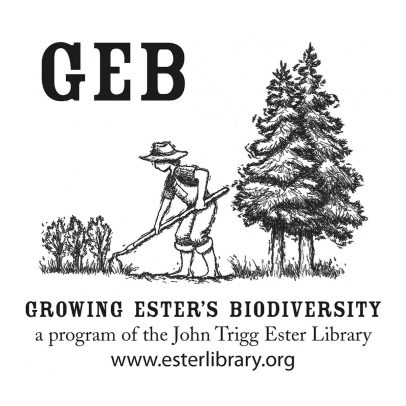Beyond Books - The Ester Seed Library
Say “library” and chances are you will automatically think of books. You might, upon reflection, add movies, public computers, and perhaps even tools, toys, or art to that list. Yet how many libraries in your neighborhood offer seeds? Seed libraries function much like other libraries: the patron “checks out” the seeds, plants them, saves seeds from the plants that grow, and “returns” them to the library.
There are more than 460 seed libraries across the country—and one of them is in Ester, Alaska. Growing Ester’s Biodiversity (GEB), established in 2012, was just one among an explosion of such lending libraries that has occurred in the last 5 years. It’s a program of the John Trigg Ester Library, located about 10 miles outside of Fairbanks.
Seed libraries are not seed banks; their purpose is to disseminate and adapt the plants to the locale (which is why they usually have heirloom, landrace, or open-pollinated seeds rather than hybrids), whereas a seed bank is a storage space to preserve the genetic pool entrusted to it. A seed library encourages planting and growing to create diversity, while a seed bank withholds seeds if it can, rather like a living museum. Seed libraries often teach seed saving or gardening, and food preservation or cooking programs—not least because these are fast becoming lost arts in modern culture.
The GEB program offers seed swaps, seed saving workshops, and seed checkout for patrons, as well as an excellent selection of related books and movies, and a community garden. The program collaborates with the nearby nonprofit Calypso Farm & Ecology Center, which hosts its own agricultural resource library, community supported agriculture shares, farmer training, and workshops.
Seed libraries reflect how farmers used to save seed and trade among their neighbors. It is a tradition thousands of years old through which all our varieties of domestic plants were originally developed and specially adapted to microclimates and other unique growing conditions. However, in the last century or so, a great extinction has occurred with commercial patenting, hybridization, and growing for the mass market. According to the Food and Agriculture Organization of the United Nations, some 75% of plant genetic diversity has been lost as farmers worldwide have abandoned their multiple local varieties and landraces for genetically uniform, high-yielding ones. This renders the plants we rely on for food much more susceptible to disease and pests—leading to an increase in the use of herbicides and pesticides, and dependence upon genetically uniform seed. Public awareness has led to the resurgence of seed sharing, and seed libraries are one way to do this. Gardeners—your neighbors—are at the forefront of a new agricultural revolution.
A Basic Seed Glossary
Heirloom seeds are seeds that have been handed down through generations by gardeners, highlighting particularly hearty, delicious, or beautiful traits. Heirloom varieties are open pollinated, stabilized, and are usually at least 50 years old (if not older).
Open-pollinated refers more narrowly to a crop that will “breed true”. That means that when plants of an open-pollinated variety self-pollinate, or are pollinated by another representative of the same variety, the resulting seeds will produce plants roughly identical to their parents. These crops are generally more genetically diverse.
Landrace seeds are genetically diverse seeds from plants that have adapted naturally to particular environments. These seeds come from a variety or collection of interbreeding varieties that were developed in a specific location with selection based on survival of the fittest for that location. Landrace crops are generally hardy and can adapt quickly to a variety of situations.
Hybrid seeds are produced by purposefully cross pollinating two plants of the different varieties or species. Although hybrids have their benefits, many gardeners agree that heirlooms and landrace seeds help promote diversity and support a future filled with more unique and diverse gardens.




